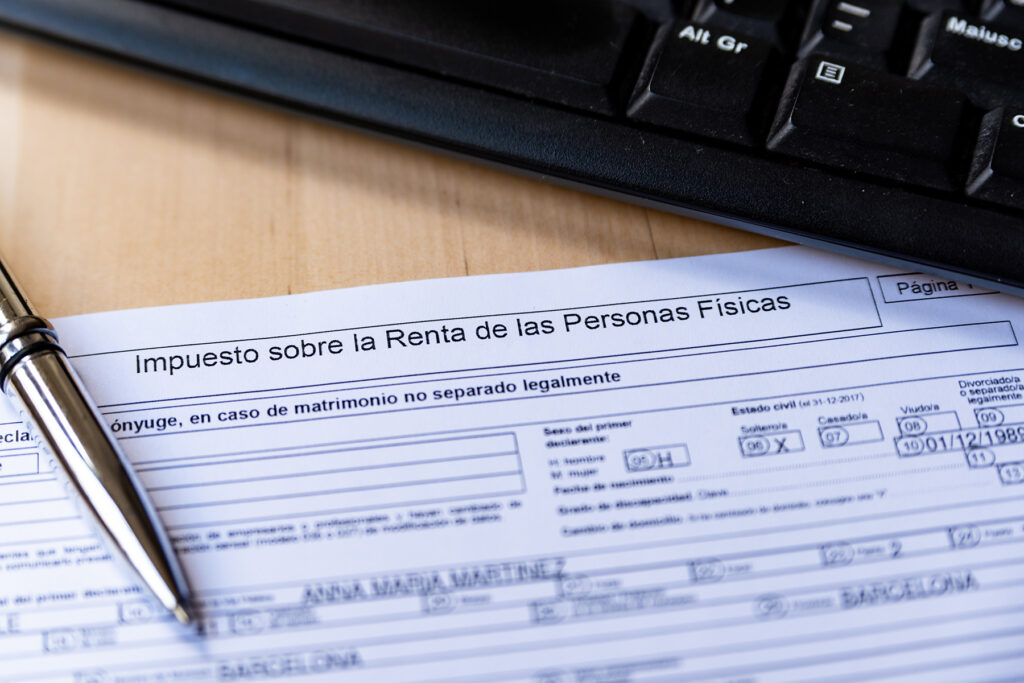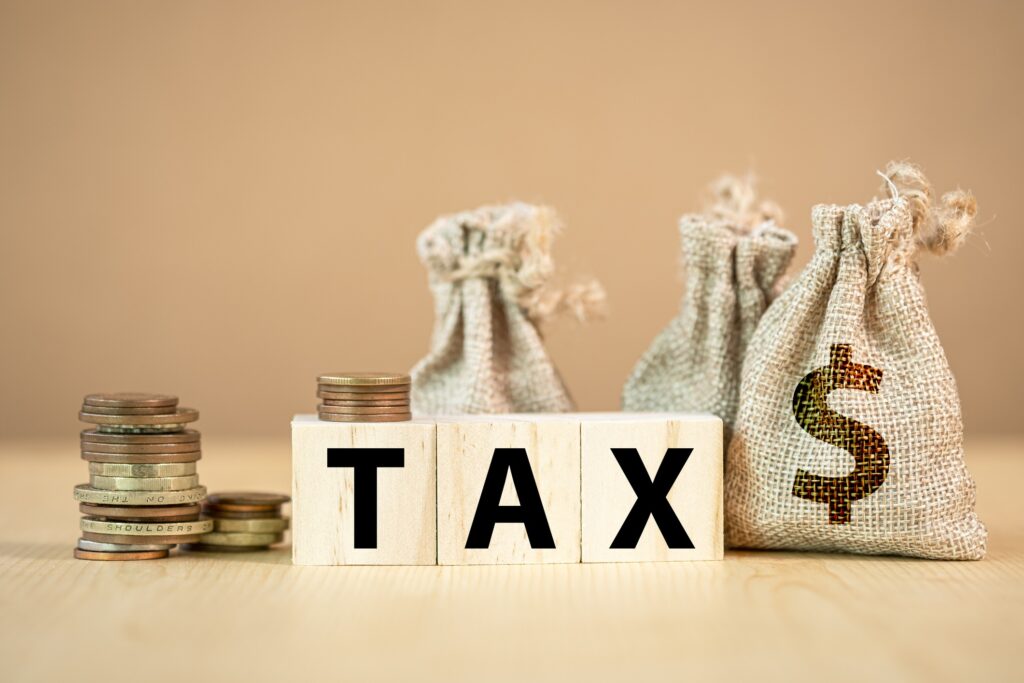What is Beckham Tax Rule in Spain? – that will be the topic of today’s article.
Before introducing this article, if you are interested in our core services which are expat financial, insurance and mortgages, you can contact me here.
The best time to consider your financial situation is when you are moving to a new country.
Introduction
If you’re planning to spend your next vacation in Spain, you don’t need to worry about taxes. The special tax regime, known as Beckham law, states that individuals who acquire their tax residence in Spain will be able to opt for taxation under regulations for non-tax residents during their first six years in Spain.
In this case, only income obtained in the Spanish territory is taxed, with the peculiarity that all work income received by the taxpayer from the date of his arrival in Spain until the date of notification of his departure is subjected to taxation. But if you’re living and working in Spain, you’re liable to pay income tax.

Moreover, taxes in Spain are split between state and regional governments. This means that Spanish tax rates can vary across the country for income tax, wealth tax, inheritance tax, and capital gain tax. In fact, workers in this country must contribute to Spanish social security taxes. Now, who has to pay tax in Spain?
Well, if you’ve been surfing the internet to get the right information about the Beckham tax rule, look no further. As a Spanish resident, you must submit a Spanish tax return and pay Spanish income tax on your worldwide income in the following cases:
- Your annual income from employment is above €22,000
- You’re self-employed in Spain or run your own business
- You receive a rental payment of above or more than €1,000 a year
- You have capital gains and savings income of more than €1,600
- If this is your first year of declaring tax residency in Spain
However, we will walk you through everything you need to know about the Beckham tax rule in this article. Aside from this fact, you’ll understand the income tax in Spain, taxes for foreigners in Spain before and after the Beckham, and many others, to mention a few. Would you love to know more? Read further!
Understanding Beckham Law in 2021
The Beckham law in Spain is a special tax regime that enables foreigners who move to the country territory to pay a flat fee of 24 percent only on the incomes they obtain in Spain instead of a progressive tax on their worldwide income.
Therefore, this tax regime for expats makes it possible to end up paying much lower taxes, hence being able to save huge amounts of money. Meanwhile, it allows all the workers who reside abroad that want to come to work in Spain to pay income and wealth tax as if they were non-residents during the first six years.
This distinction, as we’ve mentioned, is merely fiscal in nature and has nothing to do with the residence permit you may have to live legally in the country. In this case, you may or may not have obtained a formal residence permit, but if you meet the requirements, you’ll still be considered a resident for tax purposes.
How Expats Can Pay Less Tax in Spain with the Beckham Law
The Special Expats’ Tax Regime (SETR), otherwise known as the Beckham Law, was introduced in 2003 to enable expats in Spain to pay a flat income tax rate of 24 percent. Before this law was passed, foreigners living in Spain for more than 183 days would be classed as residents for tax purposes.
However, based on current tax rates, this means expats who are not utilizing the law are required to pay a progressive tax rate on worldwide income that ranges from nineteen percent up forty-five percent for earning above €60,000.
Meanwhile, under the Beckham Law, successful applicants are classed as non-residents for tax purposes, which keep their income tax rate fixed at 24 percent. Nevertheless, the forms of taxation that are affected include the following.
- Capital Gains in Spain
- Dividends in the business
- Expat Rental Income
However, you would need to pay taxes on these types of income that are sourced in Spain. Meanwhile, wealth tax presents another opportunity for expats looking to reduce tax. And it is paid on the net value of the expat’s asset, which includes things like:
- Property
- Stocks and shares
- Interest on savings
Eligibility for Beckham Law and How Expat Can Apply

Any expat planning to move to Spain should be ready to take up a new position within a company, including management and director positions. However, you should know that you’re not eligible if you’re self-employed, a professional sportsperson, or an entity director. Additionally, below are the checklists of 5 important requirements when applying for a Beckham tax rule in Spain.
- Expat must be a first-time resident in Spain or must not have been a resident in the country during the previous ten years
- You must at least have a signed work contract with either a Spanish company or a permanent Spanish office of a foreign company
- You must conduct the majority of your professional duties and activities within Spain
Additionally, the application must be made within six months of your contract beginning. So, if accepted, you’ll be eligible for the special tax rates under the Beckham Law for the first year, as well as the subsequent five tax years, amounting to 6 years in total.
Conditions for Beckham Tax Rule in Spain
- The application must be made within six months of commencing the employment contract
- The expat must be a first-time resident of Spain
- Expat must have relocated to take up an employment contract in Spain
- All employment duties must be carried out in Spain, although if their income earned from these activities must exceed 15 percent
- Another thing is that the work must be performed for a Spanish corporate entity or a permanent Spanish establishment of a foreign company
10 Things to Know before Moving to Spain
As an expat moving to Spain for the first time, you must understand some of the pros and cons. While some countries choose to give expat a free tax system, others ensure they pay. With everything Spain offers, from the warm climate to the relaxed way of life, you need to know some facts. Without further ado, let’s quickly walk you through the ten things to know before moving to Spain.
1. Prepare For Lots of Bureaucracy
Speaking of paperwork today, Spain is famous for its red tape. As an expat, you’ll have to apply for several different items of paperwork once you arrive in the country. Example includes the NIE or your empadronamiento amongst others. The process can be daunting if you aren’t prepared, so a word of advice: the level of professionalism and knowledge among officials and civil servants varies radically.
2. Nothing Gets Easier in August
Now that you’re aware of the different paperwork that you might face during your stay in Spain, here’s another spanner to throw in the works. As an expat, do not attempt to do any of these things in August. If possible, don’t try to rent or buy a house or do a home renovation.
Get a new kitchen fitted, nor anything that might be remotely productive. Aside from that, during the hot summer months, mainly August, most big cities in Spain suffer a mass exodus to the coast, and many shops, cafes, and services only open in the morning, not to mention government offices.
3. Know the Cost Of Living in Spain
In any country you choose to relocate to, the cost of living is quite essential. In Spain, the cost of living is generally quite a bit lower compared to the United Kingdom and many other countries in Western Europe. Besides, the cost of living unsurprisingly varies across the country but keep in mind that, although living in Spain is often said to be cheap, and wages tend to be lower as well
On the flip side, the essential cost of living food, rent, bills, and additional expenses in this country can be around 800 to 1,000 euros per month on a lower student budget, but can reach much higher figures for families, depending on the kind of lifestyle you choose and where you live in the country.

4. Beware Of Renting Conditions
Even before you go through the Beckham laws and conditions, it’s quite essential to be aware of the requirements for renting an apartment. Buying and renting property in Spain is not going to be the same as it is in your home country; therefore, it’s important to do your research and, if necessary, seek the help of a professional to know the right thing to do.
In addition, rental and buying conditions need to be understood to avoid having legal difficulties in the future, and you’ll also need to consider that if you’re planning on buying a house in Spain.
5. Opening a Bank Account in this Country
If you’ve been following our blog update, you’ll truly understand that opening a bank account is crucial when visiting a country for the first time. Do your research for the different banks, and if you’re considering being in the country long-term, then opening a bank account is 100 percent necessary.
Moreover, researching different banks is quite essential, and be aware that some will charge you if you don’t meet certain requirements. On the flip side, if you want to open an account before you move to Spain, various banks give you the option to do so as a non-resident.
6. Spanish People are Friendly
While you may get a lot of people that’d help you through the struggles you’re experiencing as an expat, you need to be careful as well. Spanish people are generally very friendly and might even want to practice their English with you.
But there are some other things to be aware of Spaniards if you want to be able to integrate into your new home fully. Things in Spain are, more often than not, done and said directly; this means pleasantries and small talk do not translate very well into Spanish. And another main point to be aware of about Spain and its population is that things can get loud.
7. Lateness in Spanish Meal Time
If you don’t know this, this is the right time to understand the process. Mealtimes are very late in this country. In fact, some people like to show off by telling everyone how late they want to eat dinner, but you’d struggle to do that in Spain – as they’ll always have it later than you. Unsurprisingly, people reckon the incorrect time zone has something to do with these late mealtimes.
8. Good Healthcare System
Spain has its equivalent of the NHS, which was founded in 1986. This process is run by the government, funded by tax, and is available to all Spanish citizens, along with any EU citizens in Spain. In no doubt, Spain has one of the best healthcare systems in the world. Therefore, if you’re thinking of moving to Spain, it’s wise to think about medical cover for when you’re out there.
9. Learning Spanish is Essential
Thinking of moving to Spain without knowing any Spanish learning experience? This wouldn’t be the right method, and that’s why lots of expats love to learn Spanish even before going to the country. This is because; it will definitely help, though almost 60 percent of Spaniards can’t speak English, according to a poll by the CIS State Research Institute in 2017.
On the other hand, if you move to a busy Spanish city, you’re more likely to encounter English speakers, but head to the countryside, and you’ll be smiling and waving while also pointing until you’re sore. This way, you’ll be pleased to know that Spanish is an easy language for native English speakers to learn, as Spanish and English both share Latin roots.
10. There Are Lots of Language in Spain
Spain is, in fact teeming with lots of languages, as they’re more known explicitly as Castilian. In addition, if a northerner and a southerner start speaking to each other in Spain, it’s not just a difference of accent that might pose a problem. With that being said, you should know that there are 16 different languages spoken in Spain.
What to Know About the Spanish Tax System in 2021

Sometimes, it is our career that makes us relocate to another country. One of the most critical things to understand when relocating is the taxation system of where you’re going. It really helps you plan well, especially in finances. Therefore, if you’re considering moving to Spain, below are the things to note.
a) Understanding Tax payment for Spanish Residents
As a Spanish resident, you’re entitled to tax residency in Spain if only you have stayed in the country for 183 days. This also applies to anyone who has family or a spouse in Spain. The following cases demand that you pay your Spanish income tax.
- If you’re employed, and you could get an annual income of 22,000 euros
- If you receive a yearly rental income that’s above 10,000 euros
- If you run any business in the country or you’re self-employed in Spain
- If you register capital gains, that’s up to 1,600 euros
In addition, it is mandatory that being a Spanish tax resident; you should declare any assets you have abroad if they exceed 50,000 euros. Meanwhile, the taxation for income in Spain is made on balance left after personal cost, professional allowance, and pensions have been deducted.
b) Understanding Tax Payment for Non-residents
Always remember that you cannot be a Spanish resident if you stay in the country for less than six months. However, that doesn’t exempt you from paying taxes. In fact, you’ll pay tax based on the income you earn in Spain for that specific time. Besides, the tax is charged at a flat rate meaning there are no deductions or allowances.
c) Knowing the Taxable Incomes in Spain
The taxable incomes in Spain include the following;
● Income from Salaries and Pensions Tax – Income tax in the country is split between the state and regions, as mentioned earlier. While there are some regions with reduced tax, your residence determines your income tax residency in Spain.
However, income tax payment in Spain applies to business owners or anyone with economic interests located in Spain. Not only has that but also applied to anyone with children or spouse depending on their stay in Spain.
● Capital returns Tax – Capital returns tax is said to be diverse, and it covers any income you generate from disability and life income insurance. Aside from this fact, it covers dividends and any income gotten from company interest which also referred to a partnering company that exceeds three times equity.
● Capital Gains and Losses in Spain – as an expat, you should prepare for this during your stay in the country. This is because; owning property in Spain means you have to pay tax. More so, it is the tax paid from profits earned after selling properties or other investments.
On the other hand, if you decide to sell your apartment in this country, you have to pay the uesto Transmisiones Patrimoniales (ITP, which is the property transfer tax in the country.
● Tax on Capital Transfer – Capital transfer tax in Spain range between 5 percent to 11 percent. However, this will also depend on the region that you are in. Besides, this transfer can be from real estate leases or real estate transfers, which are VAT-free. Meanwhile, you’ll be exempted from paying taxes on any shares you want to transfer.
● Urban Land Tax Increase – The tax on the increase in the value of urban land is another thing to consider. This is done based on the number of years and the value increased. But if the land is developed, then you may need to pay a tax of 0.45. However, if you have a tenant using the land, they’d be the one to pay for it on your behalf
● Real Estate Tax in Spain – This is another taxable income you need to know when planning your relocation for the first time in Spain. As we’ve mentioned earlier, there are many taxes that you ought to pay if you’re buying property in Spain. Regardless of whether a bank, the company is selling it, or it’s a new house, the tax to be paid applies to both foreigners and locals.
Frequently Asked Question about Beckham Tax Rule
How do I apply for the Beckham tax rule?
As said earlier, you can apply for the Beckham tax rule whenever you move to Spain to work as a foreigner. Not only is that, but you must have relocated to Spain to work under an employment contract. Additionally, you must not have lived in the country for the last ten years.
Is it possible to live in Spain and pay tax in the UK?
Well, the UK has a double taxation agreement with Spain to ensure that expats pay tax on the same income in both countries. In this case, it would be better to ask the relevant tax authority questions about double taxation relief. Moreover, you should get professional advice on paying taxes in Spain.
Does the Beckham tax still exist today?
This decree is a modification of the rewritten text of the Income Tax Law, in force between 2005 and 2007 and integrated in the decree 439/2007 still in force. Aside from this fact, it allows foreigners who move to Spain to work tax as non-resident during their stay in the country.
How long does the Beckham law last?
The exemption applies for the year in which the expats arrive in Spain and for the following five years, giving a total of six years. Research made it known that in 2010, an amendment to the law was introduced under which new applicants could only take advantage of the exemption if they did not earn more than €600,000 a year.
Who can apply for the Beckham law?
If you glance through the information above, you’ll understand the eligible people to apply for the Beckham tax rule in the country. However, you must be a first-time resident in Spain or must not have been a resident in the country during the previous ten years.
Conclusion
The Beckham tax rule in Spain is a special tax regime that enables foreigners who have moved to the country to pay a flat fee on the income obtained. In normal circumstances, anyone who moves to Spain to work more than 183 days a year is considered tax residents. But, you need to check this guide for more.


